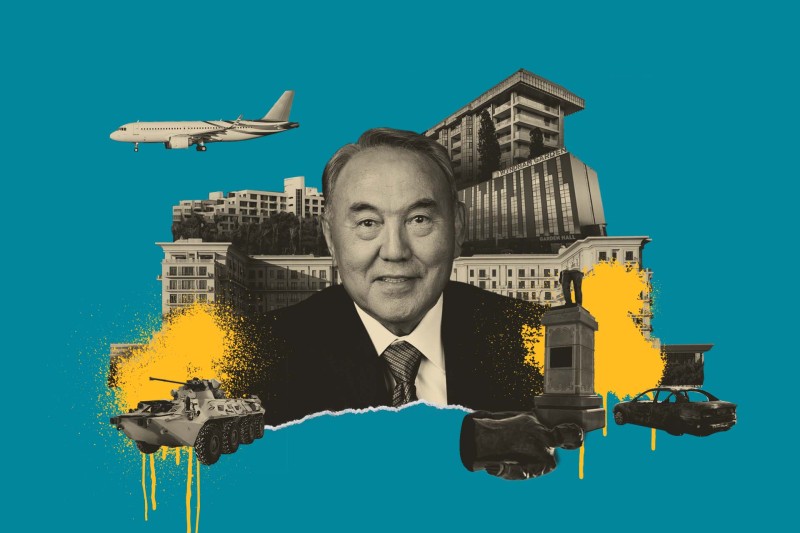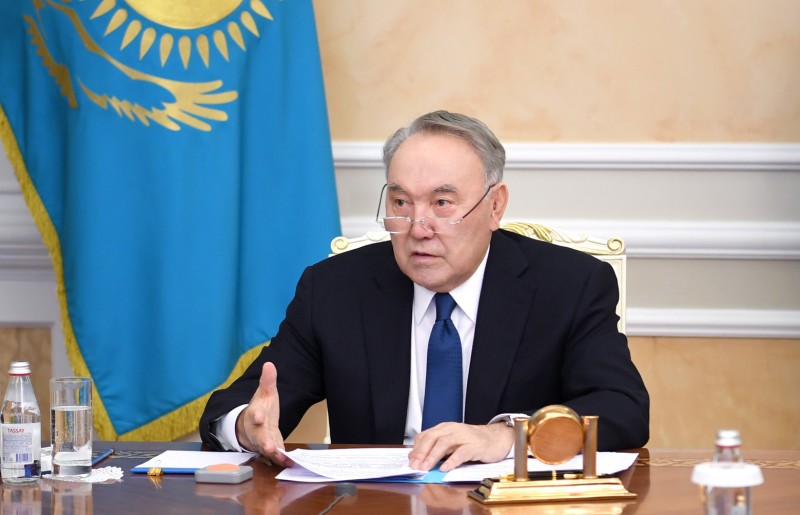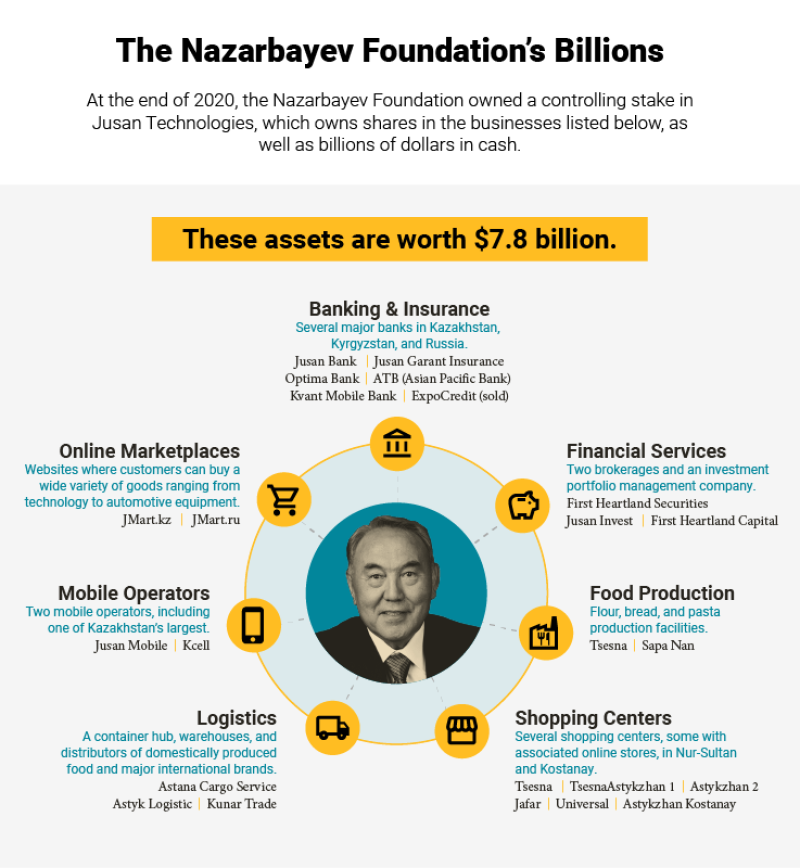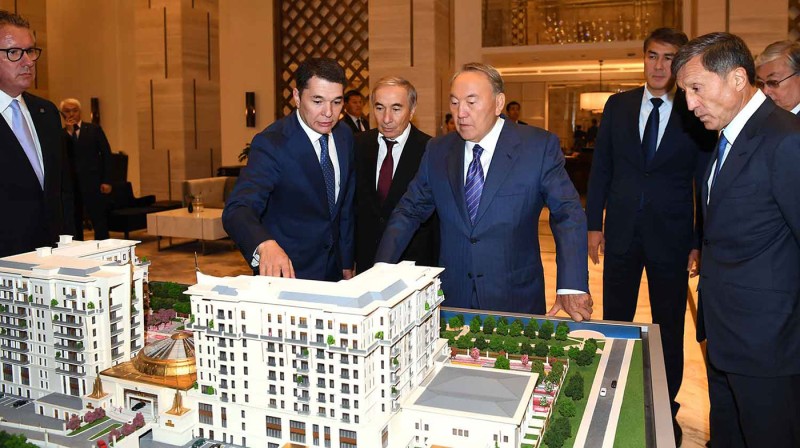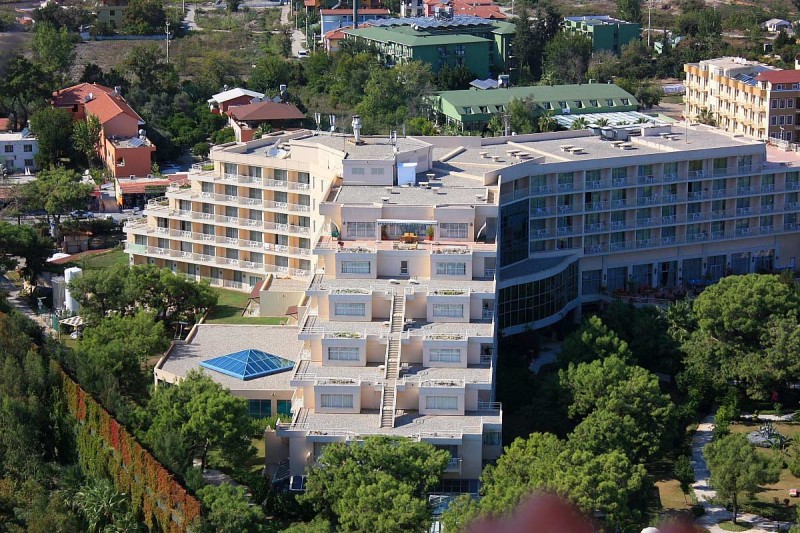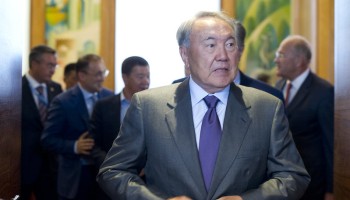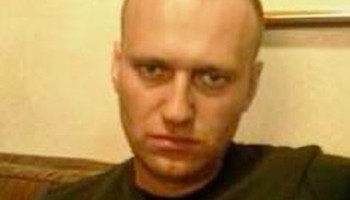A private jet worth over $100 million. Banks and TV channels. Billions in cash. Some of Kazakhstan’s most luxurious hotels, multiple shopping centers, and a golf course. But also less glamorous possessions: warehouses, a pasta factory, and at one point, even a landscaping company.
There is no obvious connection between all of these businesses and assets, which are worth at least $8 billion. But the person behind all of them is Kazakhstan’s longtime leader Nursultan Nazarbayev.
He controls them through an unusual mechanism: Four private charitable foundations, all started by him over the course of his long rule, ostensibly to help the people of Kazakhstan. But even while handing out gifts to children or popularizing the Kazakh language, these organizations have secretly acquired stakes in dozens of businesses.
Some of the assets were transferred to Nazarbayev’s foundations, or are still co-owned, by oligarchs who owe their riches to the crony capitalism that flourished during his rule. In other cases, the government of Kazakhstan poured money into private companies which were then acquired by the charitable foundations. The result is that Nazarbayev’s non-profit organizations actually own larger business portfolios than many multinational conglomerates.
Since the foundations are non-profits, Nazarbayev does not formally own their vast assets himself. However, legal experts contacted by OCCRP explained that, under Kazakhstani law, the founder of a private foundation has ultimate control over its assets. Many of the details, including how much was paid for the assets, are unknown — a consequence of the fact that, unlike normal businesses, they do not publish annual reports.
But in a months-long investigation, reporters used company records in multiple countries to put together the most complete picture to date of the vast wealth under Nazarbayev’s control. Some of these facts have been publically available, but remained unreported until now in part because critical journalism about the “Leader of the Nation” is a dangerous business.
Media Repression
There are very few independent media outlets in Kazakhstan. Journalism is largely controlled by the government or pro-government interests, and critical publications have been shut down or harassed.
These findings exemplify the corruption and stark inequality that has plagued Kazakhstan since it gained from the Soviet Union in the early 1990s. Under Nazarbayev’s long years of leadership, most Kazakhstanis have seen little benefit from their country’s vast mineral wealth, even as it lined the pockets of a circle of billionaires, including members of Nazarbayev’s family and officials close to him.
The system barely changed after Nazarbayev resigned from the presidency in 2019. He installed a hand-picked successor, Kassym-Jomart Tokayev and retained control of the security council.
This explains why, after local protests against high fuel prices in Western Kazakhstan spread across the country in early January, they quickly turned into demands for broader political change — and became personal. The chant “Old man, leave!” became a mainstay of the demonstrations. A photograph widely shared online showed a toppled statue of Nazarbayev.
The popular demonstrations were accompanied by an apparent struggle for power behind the scenes, with President Tokayev announcing on January 5 that he had taken over Nazarbayev’s role as head of the security council.
Nazarbayev himself has hardly been heard from since the unrest began, and his political influence may be at its end. What will happen to his billions is still unclear.
A spokesman for Nazarbayev did not respond to requests for comment. Three of Nazarbayev’s foundations did not respond either. The fourth told OCCRP that the former president did not benefit from any of the assets it held, which were dedicated to securing financing for educational institutions named after him.

Thirty Years of Nazarbayev
Born into a peasant family, Nazarbayev joined the Soviet Communist Party in his early 20s and rose steadily through its ranks. By the middle of his career, he was at the top of the party structure in Soviet Kazakhstan, holding positions including prime minister and first secretary of the local Party branch. When the post of president was established in 1990, he was selected to fill it. Nazarbayev was overwhelmingly reelected after the country gained its independence the following year, setting the stage for decades of one-man rule.
Over that period, Kazakhstan’s constitution was amended several times to expand Nazarbayev’s presidential powers and allow him — and only him — to run for reelection as many times as he wished. His Nur Otan party became the dominant force in a rubber-stamp parliament. Even as his regime repeatedly suppressed freedom of speech and political opposition, it allowed a circle of businessmen close to him to amass enormous fortunes and influence after a wave of privatizations.
He was granted full immunity from scrutiny or prosecution, which extends to any entities founded by him. And in 2010, Nazarbayev also gained a new title — “Leader of the Nation.”
Nazarbayev’s Law
It was around this time that he began to establish the foundations that would eventually come to hold billions in assets.
One of these, the Foundation of the First President of the Republic of Kazakhstan - Elbasy, had been established years earlier as a public foundation, but in 2011 it was reclassified as “private,” and Nazarbayev was listed as its founder. (It was dissolved in 2021.)
Nazarbayev founded two more private foundations, the Nazarbayev Foundation and the Nursultan Nazarbayev Foundation, in 2009 and 2010. He founded another two, Demeu (“Support”) and Elbasy (“Leader of the Nation”), in 2013 and 2021.
The foundations’ similar names and the way their activities are reported make them difficult to distinguish. Some don’t have websites, and those that exist can be misleading: For example, a website for the Foundation of the First President once redirected visitors to the site of the Nursultan Nazarbayev Foundation — which incorrectly lists the former foundation’s founding year as its own.
The Demeu and Elbasy foundations don’t appear to carry out public-facing activities. But the others have touted their educational, social, and patriotic projects, which are frequently reported in glowing terms in the largely pliant Kazakhstani media.
In 2011, another new law made the Nazarbayev Foundation responsible for funding two major educational institutions: a network of secondary schools and a flagship research university.
But there was more to this arrangement than it seemed.
An Endowment — and a Business Empire?
Located on a vast campus on the outskirts of Nur-Sultan, Nazarbayev University was founded in 2010 with a mission to modernize Kazakhstan’s higher education system.
“The creation of this educational institution is a most important national project, which I will oversee personally,” said Nazarbayev in a 2010 speech shortly after the university opened. “I am convinced that it will have a systematic impact on the development of the capital, our entire state, and society.”
Alongside the university, a network of primary and secondary schools called the “Nazarbayev Intellectual Schools” was also created.
Both institutions are generously funded by the state, receiving about $5 billion between 2010 and 2021. This was a disproportionate amount of Kazakhstan’s education budget, especially considering that the university and the schools host only a small proportion of the country’s students.
Most educational endowments are set up by universities to receive donations, invest them, and use the profits to fund their needs. But unlike such endowments, the Nazarbayev Foundation does not belong to the educational institutions it’s supposed to fund. Instead, it is a private organization personally founded and controlled by Nursultan Nazarbayev. Confusingly, both the university and the schools also set up their own corporate “development funds,” which they really do control.
The Nazarbayev Foundation has no website, does not publish any reports, and has not publicly disclosed how much money it has received from external donors or Nazarbayev himself.
When contacted by reporters, the chairman of its board, Aslan Sarinzhipov, provided an official document which revealed that, as of 2019, it had received $1 billion from undisclosed donors and made $200 million in investment income.
Sarinzhipov wrote in an email that, in the decade since its creation, the Nazarbayev Foundation had paid $46.5 million to fund research activities, laboratory equipment, student support, and other educational expenses. (This is equivalent to about 1 percent of the state funding the university and the schools received over the same period.)
Though it was established in 2009, corporate records show that the Nazarbayev Foundation appeared to have no investment activity until 2019, the year of Nazarbayev’s retirement.
By then, the two corporate foundations owned by the schools and university had established an investment fund called Pioneer Capital Invest, and used it to acquire a Kazakhstani bank called ExpoCredit for $30 million.
Now the Nazarbayev Foundation joined the party, acquiring 75 percent of Pioneer Capital and leaving the others with just a quarter between them. (The amount it paid for this stake is unknown.)
With its prominent new backer, Pioneer Capital went on a shopping spree, acquiring a major Kazakhstani lender called Tsesnabank. The latter had belonged to the family of Adilbek Dzhaksybekov, a former head of Nazarbayev’s presidential administration, but had to be saved by the government after being mismanaged.
Since then, Pioneer Capital has acquired several other banks, an internet marketplace, mobile operators, warehouses, shopping malls, and even a pasta factory.
The total value of its assets is a staggering $7.8 billion, including U.S. Treasury bills, Kyrgyz and Kazakh state bonds, and $3.4 billion in cash. It earned more than $500 million in profits in 2020.
In response to reporters’ questions about its investments, the Nazarbayev Foundation’s board chairman, Sarinzhipov, wrote that the organization is a “classic endowment fund … by analogy to the best international practice (the endowment funds of Harvard, Stanford, Duke).” He noted that Nazarbayev “does not have property rights” to its assets and “cannot withdraw money from the organization under any circumstances.”
The Foundation’s charter, which the Foundation provided to reporters, does indeed state that its sole purpose is to fund its educational mission. But it also stipulates that the first chairman of its highest executive body, the Supreme Board of Trustees, is Nursultan Nazarbayev — and that he has control over the Foundation, including the contents of the charter itself.
Sarinzhipov did not respond to reporters’ questions about what would prevent Nazarbayev from moving assets out of the Foundation for his own benefit, if he chose to do so. Though there is no evidence that this has happened so far, several maneuvers by Foundation structures raise questions.
In 2020, a new layer of corporate ownership was added: Pioneer Capital moved its banks, warehouses, shopping malls, and all the rest to a new holding company it established in the United Kingdom called Jusan Technologies.
Then, the following year, a mysterious company called QAZ42 Investment acquired a 3 percent stake in Jusan Technologies and its billions of assets, effectively diluting the Nazarbayev Foundation’s share. For this stake, worth over $200 million, it paid just $20 million.
It is impossible to determine who is behind this company and its highly lucrative deal, since not even the country of its incorporation is known. Reporters only managed to learn of it because of a U.K. corporate filing.
The Foundation has also begun to use especially secretive corporate structures based in Luxembourg, which has already allowed it to secretly acquire a 24-percent stake in a major Kazakhstani mobile operator.
The Secret of KCell
In September 2021, a major Kazakhstani mobile service provider, Kazakhtelecom, announced that it was offering 24 percent of its shares to “a wide range of investors in open trading.”
Hotels, TV Stations, and Landscaping
Nazarbayev’s other three foundations also went on a shopping spree since his resignation from the presidency.
In August 2020, an airplane described by Business Insider as a “flying penthouse” departed an outfitting facility in Indianapolis. It stopped in Zurich and Malta before landing in its new home base: Nur-Sultan.
The story of the apparent acquisition of this Airbus ACJ320neo — a high-end jet worth over $100 million — illustrates the conflation of the private and the official in Nazarbayev’s post-presidential life as the nation’s elder statesman.
The brand-new airplane was acquired from a Swiss aviation outfitter and imported into Kazakhstan by the Nursultan Nazarbayev Foundation, a fact that is only known because reporters obtained a document stating that it had received an exemption from import controls.
It is now operated by Berkut Air, a state airline that is subordinate to the presidential administration. And though it’s unknown whether the foundation formally owns the plane, there is compelling evidence that it is used by Nazarbayev.
The airplane’s movements have been removed from most flight tracking services, but reporters obtained information about a portion of its flights from the Open Sky Network, a non-profit organization that collects air traffic data.
They show that on June 30, 2021, the plane flew from Kazakhstan to Moscow. On the same day, the Kremlin announced that Nazarbayev had held a “working meeting” with Russian President Vladimir Putin. (In thanking Putin for his hospitality, Nazarbayev joked: “I’m a free man now — haven’t been president for three years!”)
The plane also made a number of trips within Kazakhstan, two of which reporters were able to match with Nazarbayev’s visits to a tourism hub and an archeological site.
The foundations' other acquisitions are no less luxurious. As with the plane, the source of most of the money used to acquire them is unknown. But in several cases, the companies acquired by Nazarbayev’s foundations had first received funding from the Kazakhstani government, essentially meaning that public funds had disappeared into private hands.
Among them is The St. Regis Astana, a hotel in the center of Nur-Sultan that opened in September 2017. Operating under a luxury brand owned by Marriott International, it advertises itself as “the most prestigious address in the capital city.”
The St. Regis is owned by a Kazakh company called Turion Investment Group, which built the $189-million hotel with the help of an $85-million loan from the Development Bank of Kazakhstan. Loans from this state-owned bank — which is meant to promote economic development outside of the country’s natural resource sector — have at times gone to regime insiders, a problem President Tokayev has acknowledged. On January 11, 2022, he conceded that it had “turned into the personal bank of a select group of people representing financial, industrial, and construction groups.”
In fact, one of Turion Investment Group’s shareholders was Timur Kulibayev, a son-in-law of Nazarbayev and one of the wealthiest businessmen in Kazakhstan. Less than a year after the hotel opened, Kulibayev’s share (the size of which is unknown) was transferred to Nazarbayev’s Demeu Foundation. For unknown reasons, it then went back to Kulibayev and his wife, and Nazarbayev’s daughter Dinara, in December 2021.
In Turkey, another five-star hotel owned by a Nazarbayev foundation received even more direct state support.
In the early 2000s, Nazarbayev’s Presidential Affairs Department joined two private Kazakh companies to develop a hotel on Turkey’s Mediterranean coast, where he reportedly often vacations.
The Rixos Beldibi, which opened in 2004 outside the resort city of Antalya, was built on land that the Turkish government granted Kazakhstan for tourism development.
One of the private companies that took part in the deal was owned by the “Kazakh trio,” the same three businessmen who donated to Nazarbayev’s university fund (and had reportedly invested in the controversial Trump SoHo project). As of 2010, the first year that data is available, the remaining majority stake of 55 percent was held by the Kazakhstani government.
But by 2013, just 30 percent remained with the state and a controlling stake of 69 percent had been transferred to the Foundation of the First President. After a reorganization, the controlling share was transferred to the Nursultan Nazarbayev Foundation.
Other major assets owned by Nazarbayev’s foundations include another hotel, a golf course, a ballet theater, and several media outlets. One of these, an online publication called Caravan, frequently covers the charitable activities of the foundations.
In one case, reporters found, a landscaping business owned by two of Nazarbayev’s foundations between 2012 and 2018 received $6.5 million in state contracts during his time in office.
A Pensioner Reemerges
Nazarbayev appears to be laying low in the wake of the widespread protests, violence, and foreign intervention that have shaken Kazakhstan.
Meanwhile, President Tokayev appears to be consolidating power.
While arresting thousands of people, Tokayev has also made criticisms of Nazarbayev’s stewardship of the country that would have been unimaginable just a few months ago, complaining of a powerful clique of oligarchs whose stranglehold on Kazakhstan’s economy had led to serious inequalities.
It’s unclear, however, what will happen to the billions of dollars in assets that are still under control of Nazarbayev’s foundations.
Meanwhile, Nazarbayev reappeared on January 18, giving a speech in which he denied any conflict within the Kazakhstani elites, endorsed Tokayev’s authority and planned reforms, and described himself as a “pensioner” taking a well-deserved rest.
He made no mention of his charitable work.
